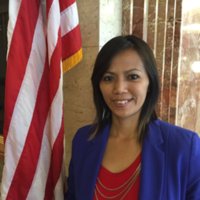
My name is Bilal ould Salka, I was born a slave in Ehel Legreyve, like my mother, my brothers and my sister and I have been given to Mahjouba mint Legreyve. Since my childhood, I did all the housework, laundry, dishes, cooking and other chores and when I finished preparing meals, my masters ate together, but the Mahjouba sent me away and I ate alone as an unclean. Mahjouba mint Legreyve my mistress, who is the wife of Mohamed Yahya Ould Brahim Taleb, the shopkeeper in the Chogar market, and all tribal member Oulad Ahmed.
When she moved to the town of Aleg to teach his daughters (Maimouna, Fatimetou, Mouna) and boys (Sheikh Hamoud, and Sidi Khaled) at the schools in the city of Aleg, I accompanied her to her home in Aleg to be the domestic slave, although among the children of my mistress Mahjouba mint Legreyve Hamoud alone is older than me. But all were to enter the school, except for me. I followed the sheep day and night and I went back to take care of small children and do the housework until morning.
My big brother Saleck began to tell me to look to rebel and escape these conditions of slavery, and when the eldest son of my mistress Mahjouba, Hamoud Ould Mohamed Yahya Ould Brahim Taleb, noted the attempts of my brother, he warned me against this dangerous adventure that is the act of leaving and joining the Moorish slaves and that slaves can not be a good example. But after a period of reflections around the ideas that my brother Saleck gave me, the usefulness of leaving the Moors, I decided to go. I took a bag containing my clothes. Mahjouba mint Legreyve, my mistress, took off my bag, saying: “It was I who bought these clothes and since you are leaving me, you're going without clothes, you do not deserve anything.” This is how I left at night. I recall that during my captivity in this family, I experienced corporal punishment from the hand of Mahjouba and her husband Mohamed Yahya Ould Brahim Taleb.
I filed a complaint with the state against the family; my mother, my sister and my brothers, and I request the assistance of Biram and his organization for me and my family to set us free and let us be a free family, united and independent.
As told to the Initiative for the Resurgence of Abolitionism









